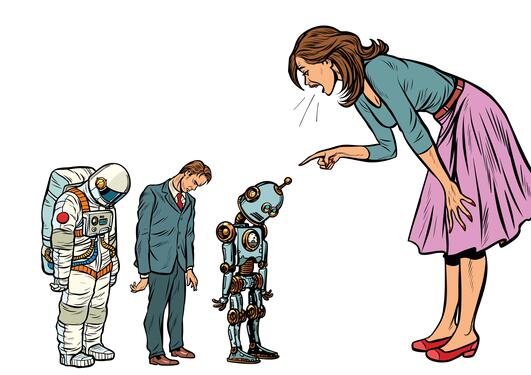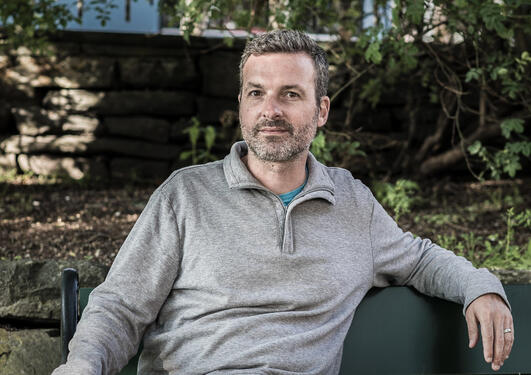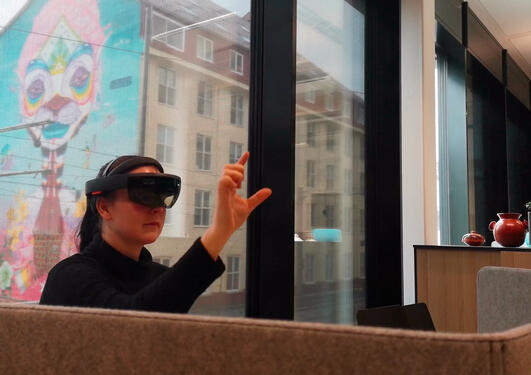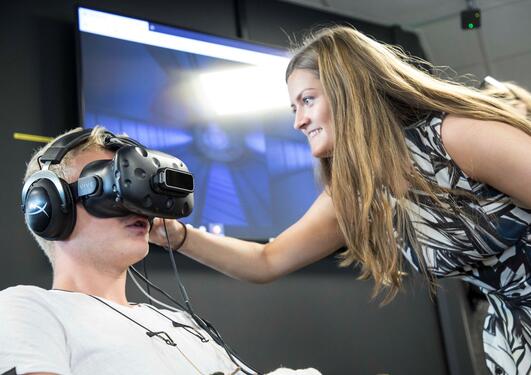30 mill Euro plan to develop responsible media technology
Researchers at Media City Bergen and key media partners seek to establish a centre for developing responsible media technology. – As the robots enter the editorial rooms, the need to guard issues like ethics and data protection is urgent, says centre leader.

Main content
Artificial intelligence producing news, 3D glasses that lets you feel the weather forecasts blizzard, AR- graphics placing the news presenter right at the centre of events. Content adapted to each users preferences and habits.
The opportunities in future media production are many and so are the pitfalls. How can one for instance assure that the media consumers are not being manipulated or exposed to fake news?
Headaches over fake news and Artificial Intelligence (AI)

The team behind the Media Futures application: Professor Leif Ove Larsen, consultant Ronan Huggerd, researcher Ane Tryggeseid, Professor Christoph Trattner and research consultant Ola Roth Johnsen.
At Media City Bergen the University of Bergen and partners in research and media business have applied to gain status as Centre for research driven innovation (SFI) to address these issues. The application to the Research Council of Norway has a frame of over 280 million NOK (28 million Euro), and the partners in research, media production and technology development have committed to contribute with over 111 million NOK (11 million euros).
The centre will be called MediaFutures, and at its core is a research-based search to find solutions to the large challenges facing modern media production, Leif Ove Larsen explains. He is head of the Department of Information Science and Media Studies at the University of Bergen.
– The media plays a crucial role in a liberal, democratic society. The media sector is now facing fundamental restructuring due to digitalisation, changes in business models and competition from international technology companies. Research based knowledge will be of utter importance for innovation and change in this sector, and for the companies’ ability to fulfil their corporate social responsibility, he says.
Sarah C. J. Willand, head of organisation- and communication at media partner TV 2, agrees.
– Digitalisation has changed journalism, and it changes our society. The tools, methods and user patterns are changing, and so are the business models. The challenges are tremendous, but they also offer huge opportunities, she says.
Gathering key players in the business
Christoph Trattner, head of MediaFutures, stresses the value of having gathered key players in the sector in the application.
– With MediaFutures we fulfil the visions behind Media City Bergen. We aim to strengthen the collaboration between its partners and make the cluster a knowledge cluster as well as a producer of media content and media technology. Our team also includes prestigious international partners, and we certainly aim to make an impact beyond national borders. Today’s media consumers certainly see no such borders, he says.



